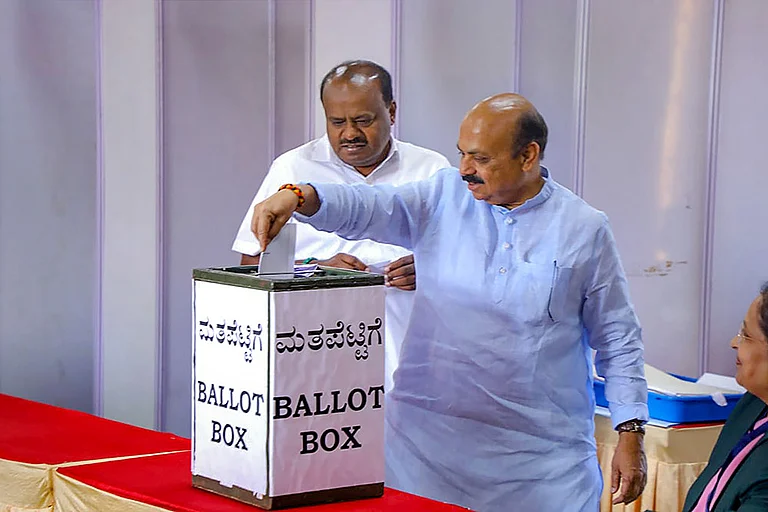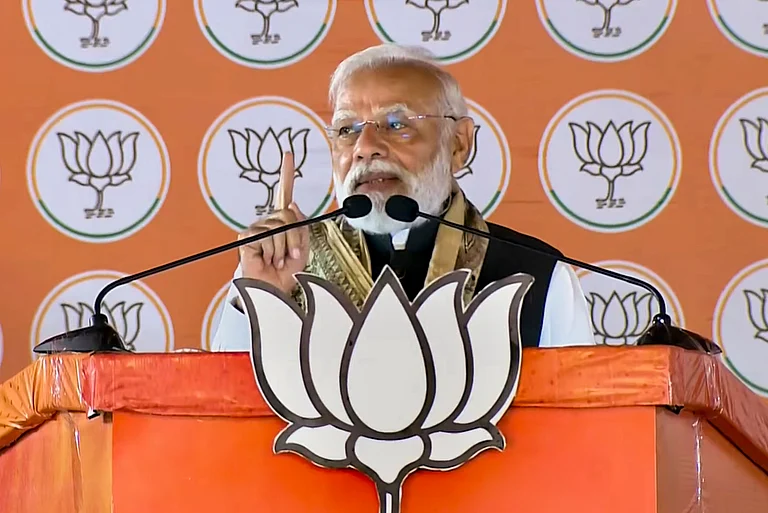During his reply to the Motion of Thanks to the President’s address, Prime Minister Narendra Modi in Rajya Sabha said that Jawaharlal Nehru, the first PM of India was against reservation and hence, Congress should not preach social justice. Referring to a letter that Nehru wrote on June 27, 1961, Modi said, “Nehru ji used to say that if SC/ST/OBC got quotas in jobs, then the standard of government work would fall.”
However, was the claim true in both its essence and content?
If the content of the letter that PM Modi referred to is concerned, it is found to be true. Nehru really expressed his displeasure over continuing reservations that could affect ‘meritocracy’. But there was more to it.
The letter was written in 1961. But to understand the Congress government’s position and, for that matter, Nehru’s per se, one must go back to the days of Constituent Assembly debates.
It was none other than Nehru who used the term Other Backward Classes (OBC) on the floor of the house for the first time. On December 13, 1946, while presenting his Objectives Resolution before the Constituent Assembly, Nehru said that special measures were to be taken in favour of “minorities, backward and tribal areas and depressed and other backward classes.”
Though he didn’t elaborate on it further and nor did Congress leaders like K M Munshi let it happen, Article 340 which was voted on January 26, 1950, mentioned:
The President [of the Republic) can by decree nominate a Commission formed by persons he considers to be competent to investigate, within the Indian territory, on the condition of classes suffering of backwardness as well in social as in educational terms, and on the problems they meet, the way of proposing measures which could be taken by the Central or a State Government in order to eliminate difficulties and improve their condition.
Accordingly, the first backward classes commission was appointed on January 29, 1952, under the chairmanship of Gandhian Kaka Kalelkar. Its investigation took caste as a fulcrum to understand the backward class and in its report came up with a list of 2,399 castes that represented almost 32% of India’s population that needed affirmative action due to their ‘social and economic backwardness’.

GB Pant, then Nehru’s Home Minister, however, rejected the report and said, “The recognition of the specified castes as backward may serve to maintain and even perpetuate the existing distinctions on the basis of caste”. It is interesting to note that Pant had objections regarding using caste as the criterion to demarcate the communities that needed affirmative action.
So, the same government that once voted in favour of Article 340 didn’t even discuss the report in Parliament when it was tabled on September 3, 1956. It was in May 1961 that the Nehru government decided that there was no need of all India list of OBCs. It was after all of these that Nehru wrote the letter that PM Modi referred to in a bid to establish Nehru’s opposition against the OBC reservations.
PM Modi also said that it was his party that historically supported the marginalised population. However, one must remember that when VP Singh government recommended the implementation of Mandal commission reports, it was his largest ally BJP that came up with the Ratha Yatra to create a united image of Hindus.

This gave birth to the Mandal versus Kamandal politics and changed the north Indian political scenario forever. Singh's government, nevertheless, was not only criticised but was also punished by the party top brass as BJP withdrew its support leading to the fall of his government after Advani’s arrest by Lalu Prasad Yadav in Bihar. In contrast, it was a Congress government in 2006 that implemented 27% reservation for the OBCs in the educational institutes across India.
However, the BJP has been vocal about the reservation of economically weaker upper castes for decades. From Pramod Mahajan’s request to the then PM Vajpayee in 2003 to set up a commission to initiate reservation system for EBCs (economically poor among the upper castes) to PM Modi’s passing of the bill to ensure 10 per cent reservation for the EWS- marks the journey of BJP’s reservation plank. Is there any certain change?
At a time when Lok Sabha elections are just a couple of months away and the Opposition INDIA bloc is trying to utilise caste census as the only broader plank to counter the BJP’s unabated growth across the northern belt of the country, PM Modi’s statements have significant electoral relevance.
Firstly, after the departure of JD(U) – the only regional party that could manage to publish the reports of caste survey which boosted the morale of the Opposition to ride on Mandal 2.0 – the Congress-led alliance is struggling to figure out the future of their caste census plank. The sudden political vacuum has led to Rahul Gandhi even committing that his party would remove the 50 per cent cap on reservation if voted to power. So, in this context, evoking Nehru’s letter without the context and history seems workable for the ruling party.
Secondly, everything is seemingly not well for the BJP in Maharashtra after Chief Minister Eknath Shinde’s promise to provide Kunbi certificate to all Marathas leading to their inclusion in the OBC list. While Shinde has reportedly carved out his own constituency among Marathas, his deputy and the face of BJP in the state Fadnavis is yet to sail through Jarange Patil – the Maratha activist’s allegations that it was the Brahmin Deputy CM who was responsible for both the delay in distribution of the caste certificate and the alleged lathi charge on the activists.
This comes along with another tension for the BJP as OBCs in the state – a constituency that the party has been wooing for decades – have now planned a large-scale protest against the inclusion of Marathas into the OBC list. Political analysts think that it could potentially lead to a shift of OBC vote bank toward Congress-NCP which the BJP could hardly afford. And thus, Modi’s statement some way or other tries to remind the OBCs that the Congress party actually never stood beside them.



























